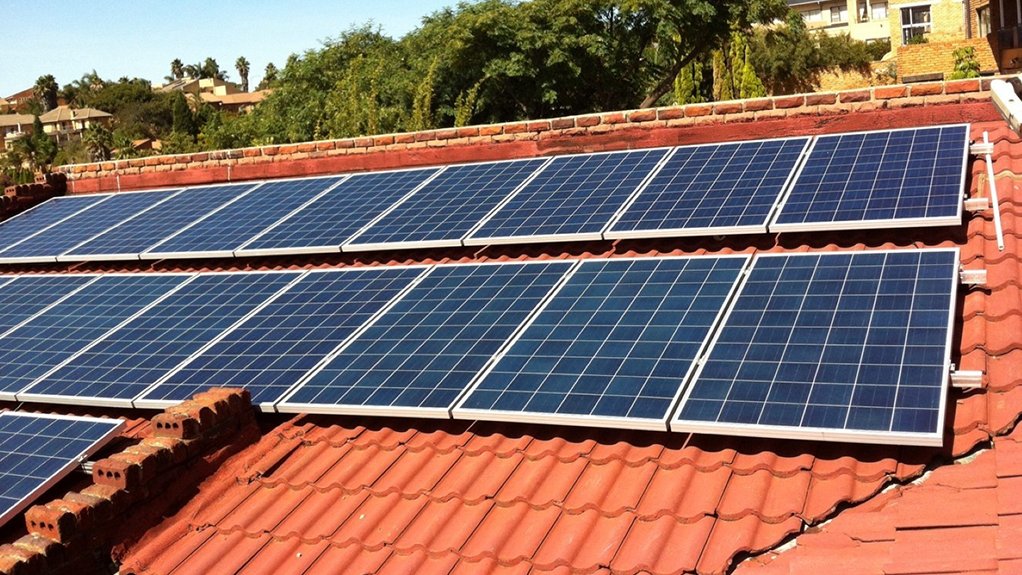South Africa’s 2023 Budget includes tax incentives worth R9-billion to support businesses and households invest in renewable energy, including rooftop solar, in a bid to offset the impact of intensifying power cuts.
In addition, the National Treasury announced that it would amend the bounce-back loan scheme, initially set up to support the recovery of businesses from the Covid-19 pandemic, to help address energy-related constraints.
Finance Minister Enoch Godongwana said the decision to incentivise renewables investments had been taken to enable customers to alleviate pressure on the grid, but also stressed that it was not an open-ended incentive.
He announced that the tax incentive available for businesses to promote renewable energy would be temporarily expanded beyond its current design, which allowed businesses to deduct the costs of qualifying investments over a one- or three-year period, creating a cash flow benefit in the early years of a project.
Businesses are currently able to deduct 50% of the costs in the first year, 30% in the second and 20% in the third for qualifying investments in wind, concentrated solar, hydropower below 30 MW, biomass and photovoltaic (PV) projects above 1 MW. Investors in PV projects below 1 MW are able to deduct 100% of the cost in the first year.
“Under the expanded incentive, businesses will be able to claim a 125% deduction in the first year for all renewable-energy projects with no thresholds on generation capacity.
“The adjusted incentive will only be available for investments brought into use for the first time between 1 March 2023 and 28 February 2025.
“For a business with positive taxable income, the deduction will reduce its tax liability,” the Budget Review states.
The National Treasury shows that a renewables investment of R1-million, for instance, would qualify for a deduction of R1.25-million. Using the current corporate tax rate, this deduction could reduce the corporate income tax liability of a company by R337 500 in the first year of operation.
A rooftop solar incentive for households is also proposed, whereby individuals will be able to receive a tax rebate to the value of 25% of the cost of any new and unused solar PV panels.
“To qualify, the solar panels must be purchased and installed at a private residence, and a certificate of compliance for the installation must be issued from 1 March 2023 to 29 February 2024,” the Budget Review states, adding that the rebate is available only for solar PV panels, and not inverters or batteries, to focus on the promotion of additional generation.
“It can be used to offset the individual’s personal income tax liability for the 2023/24 tax year up to a maximum of R15 000 per individual. For example, an individual who purchases 10 solar panels at a cost of R40 000 can reduce their personal income tax liability for the 2023/24 tax year by R10 000.”
Meanwhile, the National Treasury would seek to make amendments to the bounce-back scheme by May so as to allow for government to guarantee solar-related loans for small and medium-sized enterprises.
Under the repurposed arrangement, commercial banks will be permitted to borrow directly from the scheme to facilitate the leasing of solar energy equipment to small businesses and small businesses installing solar will be able to borrow finance for working capital.
In April 2022, Godongwana approved the reduction of the government loan guarantee scheme to R20-billion as a result of lower-than-expected take-up. Of this amount, R8-billion will be used for the new bounce-back scheme.
The Minister also announced that fuel levies would be held steady to limit the effect of high fuel prices, resulting in R4-billion in foregone revenue.
In addition, the diesel fuel levy refund available to the farming, forestry, fishing and mining sectors has been extended to manufacturers of foodstuffs in a bid to limit the impact of power cuts on food prices.
“In light of the current electricity crisis, a similar refund on the Road Accident Fund levy for diesel used in the manufacturing process (such as for generators) will be extended to the manufacturers of foodstuffs.
“This will take effect from 1 April 2023, with refund payments taking place once the system is developed, and will be in place for two years until 31 March 2025.”
EMAIL THIS ARTICLE SAVE THIS ARTICLE ARTICLE ENQUIRY
To subscribe email subscriptions@creamermedia.co.za or click here
To advertise email advertising@creamermedia.co.za or click here











